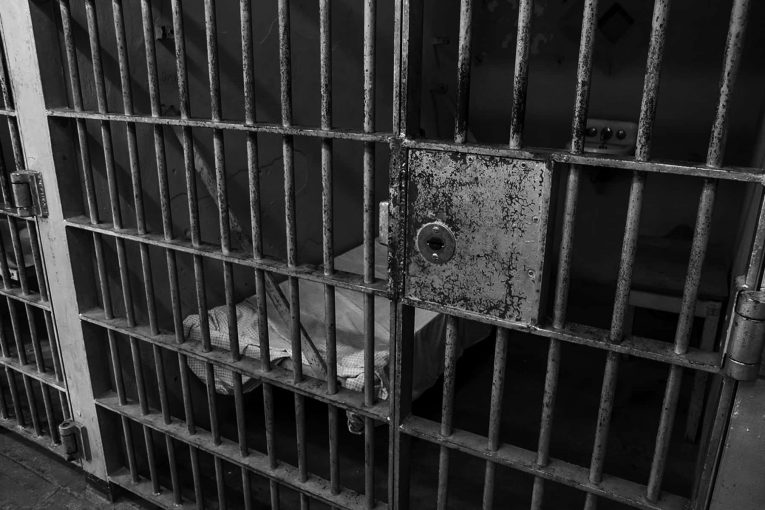


By Ricky Ortega
Sentenced to life without parole, I was given a one-way ticket to Folsom prison. As I boarded the bus, I noticed the other prisoners were unusually quiet, perhaps contemplating life next to the gallows of “Old” Folsom, notorious for being one of the most violent prisons in the country. As the bus set out on this lonesome highway, I looked out my window and said goodbye to the world I once knew, the world I would never see again, It seemed like only yesterday I was walking down the aisle of my high school graduation with a promising future ahead of me, and now it’s gone in an instant. Like the wings of a butterfly, with colors that dazzle the imagination; it flutters away in the blink of an eye, as I’m left to face the biggest challenge of my life.
We arrived at our destination at dusk, on a foggy night, adding to the ambiance of Folsom prison, with a full moon hovering over a dark castle like an old Frankenstein movie. As I stepped off the bus into the unknown, one of the guards looked at me, shook his head and said, “You’re never going to make it out of here, son.”
Consequences, the aftermath I encountered for my deliberate disregard for human life. It’s a harsh reality that anyone with a conscience must face. Like our shadows that follow us wherever we go, we can’t escape the victims of our past. They are the silent voices that whisper from the dark corners of our mind; the voices that once prayed to the God of love before they were silenced by our selfish acts. This series of articles will take a closer look inside the mind of those serving life without parole as they make strides toward a brighter future by facing the  shadows of the past.
shadows of the past.
George Lucev, 38 years into his life without parole sentence reflects on his years of rehabilitation: “From an early age I knew right from wrong but I lacked the wherewithal to choose, thus I was involved in the stabbing death of Vladimir Jelenis. Developing my insight began when I accepted full responsibility for this,” admitted Lucev. “Only then did I identify that I was lost and that in order to live and change, I needed new principles.”
When asked how he deals with his conscience, Lucev responded, “I am finding it deeply inspiring to wake up each day now and begin to think through my mission in life, to make steps towards my goals and to what’s meaningful to me. I’ve learned to listen to my conscience, my inner voice which gives me wisdom, self-awareness and common sense. Within my ‘self’ responsibility now empowers my ability to obey my conscience and choose the right path.”
Ivan Charles, LWOP for 39 years, was very specific when he stated that “my rehabilitation means freedom from my past addictions. It allows me to be myself, no longer a slave to my drug and alcohol lifestyle. It has introduced me to my true and authentic self,” confessed Charles. An avid member of self-help programs here at MCIC, he admits “they have helped me find my core self and uncover the root causes of my past trauma and criminal lifestyle.”
When asked how rehabilitation is changing his life, Charles responded emphatically that “it’s very important to my survival. Rehabilitation holds me accountable for my words, thoughts, and deeds. It allows me to pro-social and to be of service to others. I owe a lifetime of amends to the Mitchell family and all those I’ve harmed.”
Those seeking rehabilitation have a long and arduous journey ahead of us. Coming to terms with the fact that we are responsible for someone’s death can be a debilitating journey, but our victims are a moral obligation that we hold ourselves accountable to . They are the voices amplified by our conscience and guide us to reset our moral compass. They are the reflected images that inspire us and provide our lives with a positive direction. They will never be overlooked; they are the shadows of our past.
Ricky Ortega is Incarcerated in California
